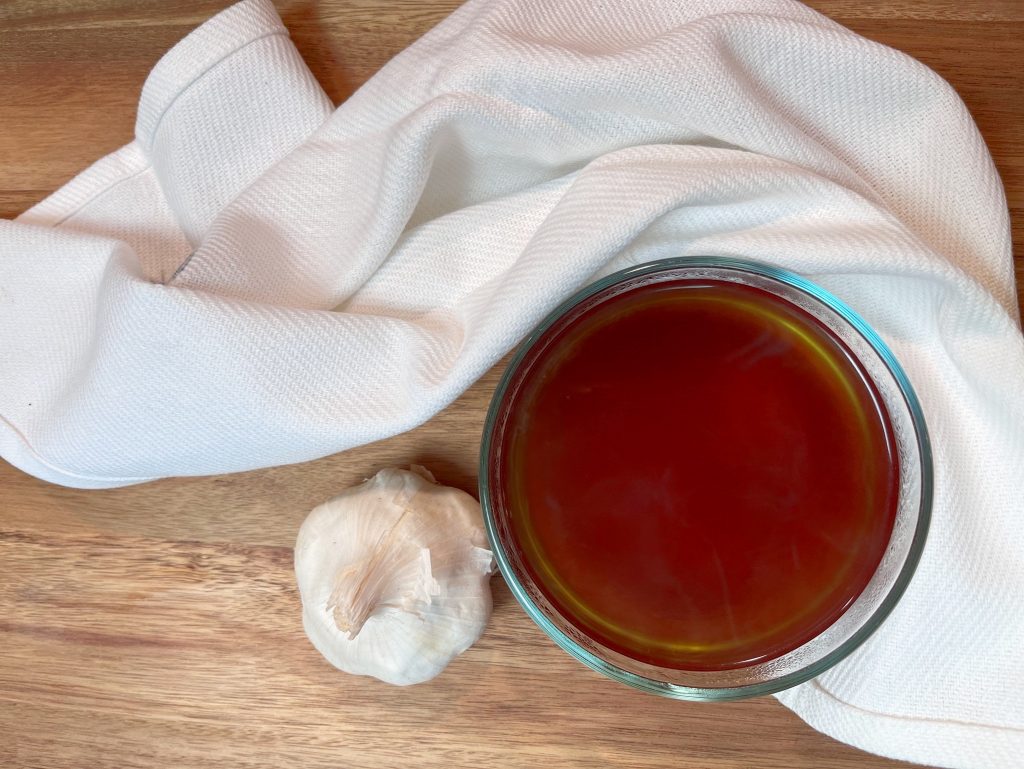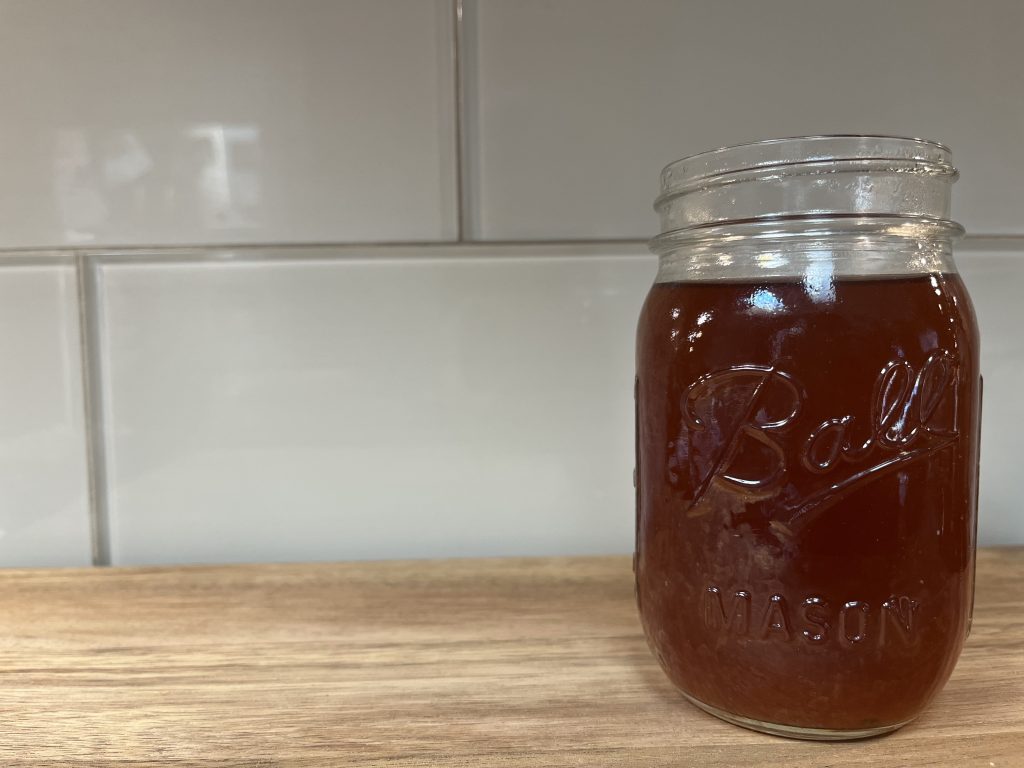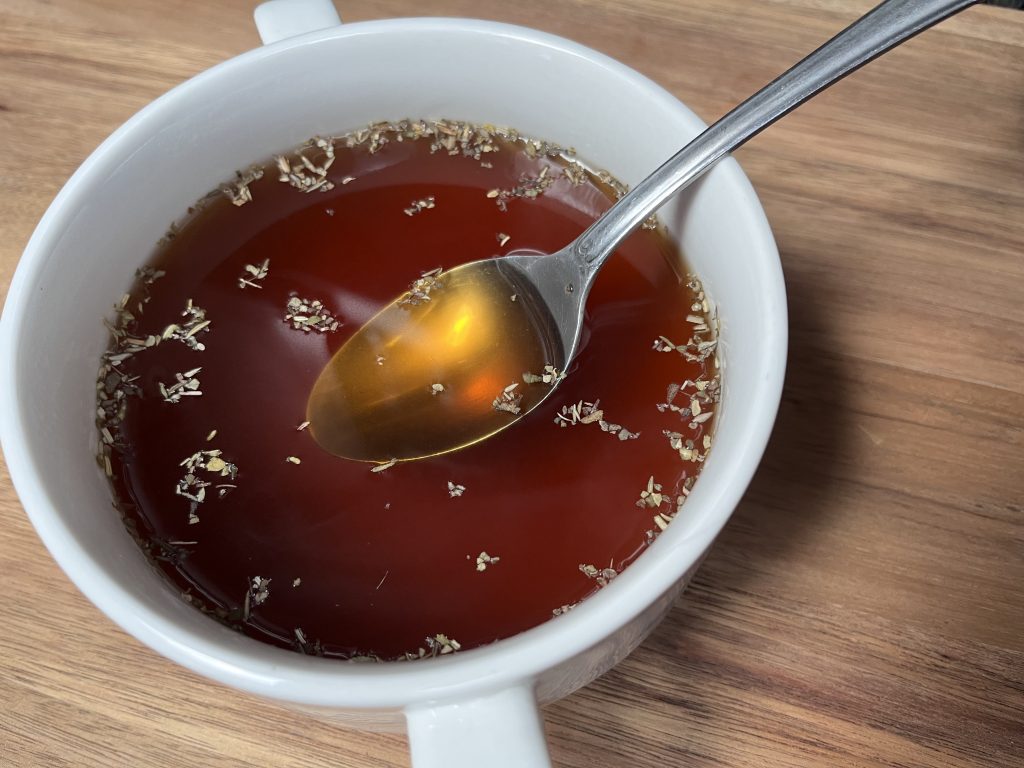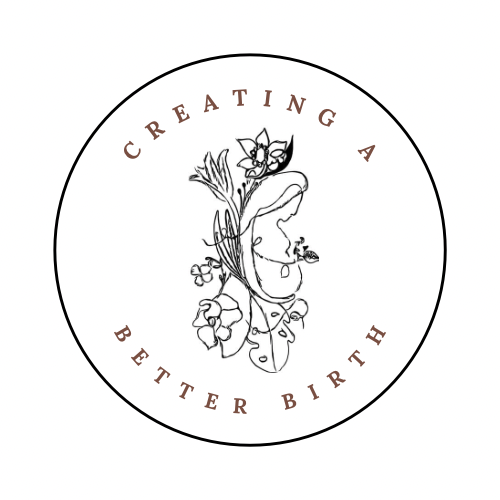
If you’ve dipped your toes into the world of holistic remedies, you’ve probably heard of bone broth. In case you aren’t familiar with what it is; bone broth is a delicious, extremely beneficial drink packed with vitamins, minerals, and healthy fats! In today’s post, we will discuss the many benefits of bone broth in pregnancy, postpartum, and while breastfeeding.
Let’s dive into how it can improve your overall gut health, help prevent stretch marks, speed up your postpartum healing, provide optimal vitamins and minerals for you and your baby, help you sleep better, and so much more!
What is Bone Broth?
Bone broth is a drink made from water, seasonings, and animal bones. It offers anti-inflammatory properties, satisfies hunger, and is known to support and repair tissues in the body.
It contains many essential amino acids including:
- Gelatin (collagen)
- Glycine (which is known to lower stress levels and improve sleep patterns)
- Arginine (anti-inflammatory)
- Proline (healing and immunity boosting)
- Chondroitin (joint health)
- Glucosamine (anti-inflammatory and bone health)
And so, so much more!
Benefits in the first trimester
70% of women experience morning sickness during the first trimester, bone broth is an ideal way to keep up nutrient intake when keeping food down is difficult. It’s easy to digest, is an excellent way to rehydrate, settle your stomach quickly, and it’s nutrient dense.
If you are unable to drink it, you can use it when cooking. If all you can handle are starchy foods, you can use it to make mashed potatoes, rice, quinoa, soups, pastas, smoothies, or whatever you can handle. Any amount of broth can be beneficial to yours and your baby’s health.
Bone broth contains gelatin, which is a source of protein that gently soothes your digestion and can help rid you of morning sickness.
Many women prefer an electrolyte drink during the first trimester. Bone broth is a great natural substitute for the sugary, processed drinks you would buy at the grocery store! It naturally contains electrolytes like sodium, potassium, and magnesium.
Drinking or eating foods made with broth are excellent ways to get protein into your diet when you are unable to eat meat. While bone broth is not considered a complete protein, it can still be beneficial if you are unable to keep other proteins down.
The first trimester is typically the time where you begin taking prenatal vitamins. Bone broth contains bone marrow which supports vital stem cell creation. Drinking broth brings you closer to meeting your daily requirements of protein, carbs, fat, calcium, magnesium, phosphorus, glycine, zinc, iron, boron, manganese, and selenium. All things that you should be looking for in an essential prenatal.

Benefits in the second trimester
Pregnancy is a time of incredible tissue growth and development. Growing and repairing tissues requires protein. It is essential for up keeping the mother’s body, as well as meeting the dietary needs of a growing baby. Bone broth is an excellent source of amino acids, the building blocks of protein.
One especially important amino acid is glycine. When not pregnant, the body can produce enough glycine on its own. But the demand for it increases while pregnant and becomes essential to your diet.
Bone broth is rich in glycine and supports the crucial role it has in growing a baby. Including building connective tissue, expanding the mothers uterus, and developing the placenta.
Bone health is incredibly important in pregnancy. Minerals, especially calcium, are vital for a babies development. If a mothers calcium stores are low, those minerals will be pulled directly from the mothers own bones, weakening them in the process. Consuming mineral rich foods during pregnancy and while nursing not only builds the baby‘s bones, but it prevents mom‘s mineral stores from being depleted.
Bone broth is an excellent dairy-free source of calcium, magnesium, phosphorus, and other trace minerals needed for bone growth and repair.
Collagen is the most abundant protein in bone broth. It is beneficial for injury prevention, circulation, tissue repair, uterus expansion, strengthening the pelvic floor, maintaining good joint support, boosting the elasticity of your stretching belly, and may even minimize the amount of stretch marks you acquire. Collagen can, of course, be supplemented through vitamins. However, drinking it is the best way to get it directly into your system. Your body will better absorb it if it is consumed in liquid form.
Ingesting collagen daily will improve yours and your baby’s bone and connective tissue health.
Benefits in the third trimester
Having a healthy gut microbiome is important for yours and your babies health leading up to and during delivery. Bone broth provides beneficial bacteria and flora to help improve your digestion and boost your immune system. If your gut health is out of whack, your nutrient absorption is compromised and your baby will receive less of the vital nutrients that it needs. Maintaining good gut health will give your baby access to the full range of nutrients that you get from your food.
Your small intestine is the first line of defense in your immune system. It is also the primary site for nutrient absorption. The collagen in bone broth can help improve damaged or leaky intestines. Therefore improving your immune function and improving your gut health overall.
Bone broth also provides prebiotics and probiotics which will support a healthy microbiome. (I will discuss the importance of a healthy microbiome in a separate post)
Bone broth is rich in glycine and protein, which are great for your gut lining. They are also very important for fetal development. Broth during pregnancy can have an incredibly beneficial impact on your intestinal health. Your gut is the corner stone of hormone production during pregnancy. So make sure you keep your gut happy!
Your babies brain is one of the last things to develop. The brain is made up mostly of fat, so it’s a good idea to consume a variety healthy fats while you’re pregnant. Bone broth contains osteocalcin (a healthy fat) which has been linked to cognitive function and mood. It provides many mental benefits as it improves memory, boosts mood, and lowers stress.
Many women find it difficult to rest or sleep in the third trimester. Bone broth has proven to help you fall asleep faster, maintain a deeper sleep, and wake up fewer times throughout the night. It may also help you relax during the day.
Broth can provide valuable joint care because it contains nutrients such as chondroitin and glucosamine. These have been known to encourage the growth and repair of cartilage. Broth can ease stiffness, aches in the knees, hips, and even your hands and elbows. As your body prepares for labor and delivery, it produces a hormone called relaxin that softens your ligaments and joints. Getting plenty of chondroitin and glucosamine can help combat the pain that comes with relaxin.
Since bone broth contains collagen and improves your skin elasticity, it can also help with vaginal tearing during delivery.
Glycine (The main amino acid in bone broth) is crucial for lowering blood sugar. If you have gestational diabetes during your third trimester, this can be an excellent option to help keep that in check!

Benefits during postpartum and breastfeeding
Childbirth is one of the most strenuous activities the human body can go through. Your body will crave nutrients as it heals.
Also, nutrient needs are higher postpartum than they are during pregnancy, especially for those who breastfeed. Bone broth can help replete the loss of bone density from pregnancy and replenish the nutrients lost during the birthing process. To recover and heal properly from the demands of birth, you need proper amounts of collagen. Collagen helps to heal wounds, rebuild the tissue of the uterus, revitalize stretched out skin, and improve your abdominal muscles and pelvic floor. Drinking broth is can aid in repairing damaged and stretched out tissues in the body.
Drinking broth postpartum can help improve the look of stretch marks and rehydrate your skin.
Because bone broth is packed with nutrients, it can also help to boost your milk supply and ensure that you are getting the nutrients you need while breastfeeding.
How often to drink it
There is no straightforward answer to this question. Some people prefer to drink one glass (8 ounces) a day. Some people prefer to drink several. Either way, some is better than none. So whether it is one glass or four, it will benefit you.
Whether you drink it or simply use it when cooking, your body and your baby will thank you.
How to store it
Whether you make a small or large batch, you can store it in the fridge for up to five days. It can be frozen for up to six months and reheated as needed. I use these mason jars to store mine.
Where to get the bones
Any leftover bones you have from making a meal can be used to make broth. You can collect them in a bag or store them in your freezer until you’re ready to cook them. If you’re not someone who typically buys bone-in meat, you can try asking for the bones at your local butcher or farmers market. They are usually inexpensive and some butchers may even give them to you for free! Do your best to find pasture raised/grass fed bones since these animals will be the healthiest and provide maximum health benefits to you. Be sure to ask for connective tissues as well as the bones. Natural compounds found in cartilage such as vitamin A, vitamin K2, minerals like zinc, iron, boron, omega-3/omega-6 fatty acids, and selenium can all be found in joints as well as bone marrow.
How to make bone broth
You don’t really need a recipe to make bone broth. All you really need is a large pot, water, and bones. I add vinegar to mine to help pull out the valuable nutrients from the bones.
Here is an easy recipe that you can follow:
Ingredients
- 2-4 pounds of animal bones
- 1 gallon of water
- 2 tbsp apple cider vinegar
- 1 clove of garlic
- Salt and pepper, to taste (I use Himalayan salt to add extra electrolytes)
Directions
1. Place all the ingredients in a large pot or slow cooker.
2. Bring to a boil.
3. Reduce to a simmer and cook with the lid on for 12-24 hours. (The longer it cooks, the better it will taste and the more nutritious it will be.)
4. Allow the broth to cool. Strain it and discard the solids.
(Be careful about adding extra salt if your doctors are concerned about your salt intake)
In conclusion
Bone broth is a nutrient-packed wealth of vitamins and minerals. Drinking bone broth may be an excellent choice as you grow and nourish your baby. There’s no way I could ever cover all the benefits of consuming it in one blog post. If you have questions or comments, don’t hesitate to ask them in the comments below or find me on social media. I look forward to connecting with you!
Disclaimer: All content and media on the Creating a Better Birth website is created and published online for informational purposes only. I am a birth doula, not a licensed medical professional. Any information posted here is not intended to be a substitute for professional medical advice and should not be relied on as health or personal advice. Always seek the guidance of a qualified health professional with any questions you may have regarding your health or a medical condition. Never disregard the advice of a medical professional, or delay in seeking it because of something you have read on this Website.
If you think you may have a medical emergency, call your doctor or call emergency services. If you choose to rely on any information provided by Creating a Better Birth, you do so solely at your own risk.

So helpful! Definitely keeping this in mind for if another baby comes along ♥️
So glad you found it helpful!